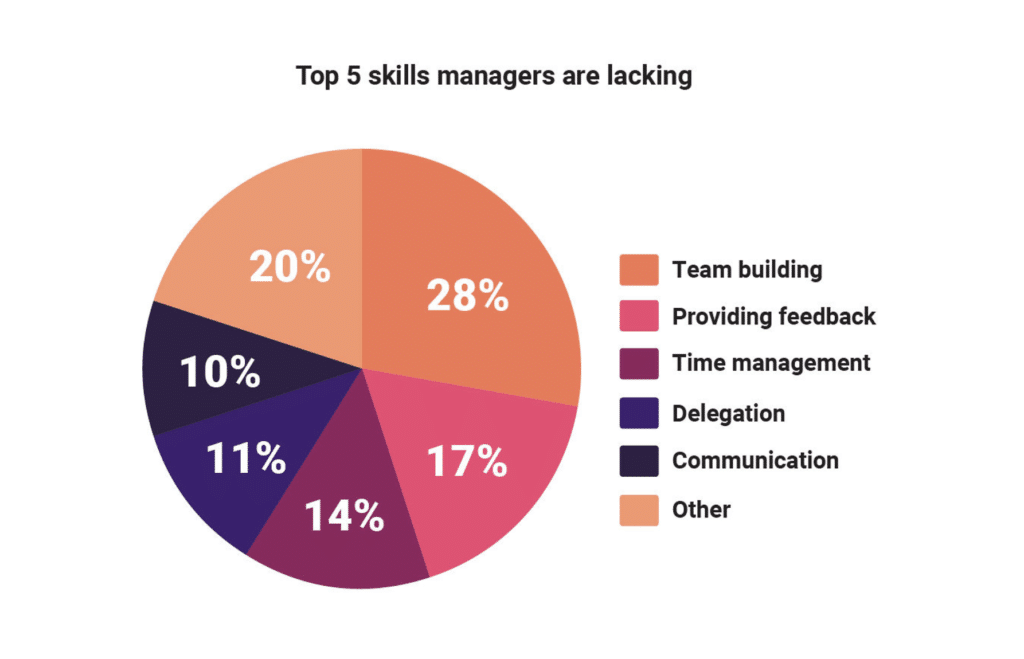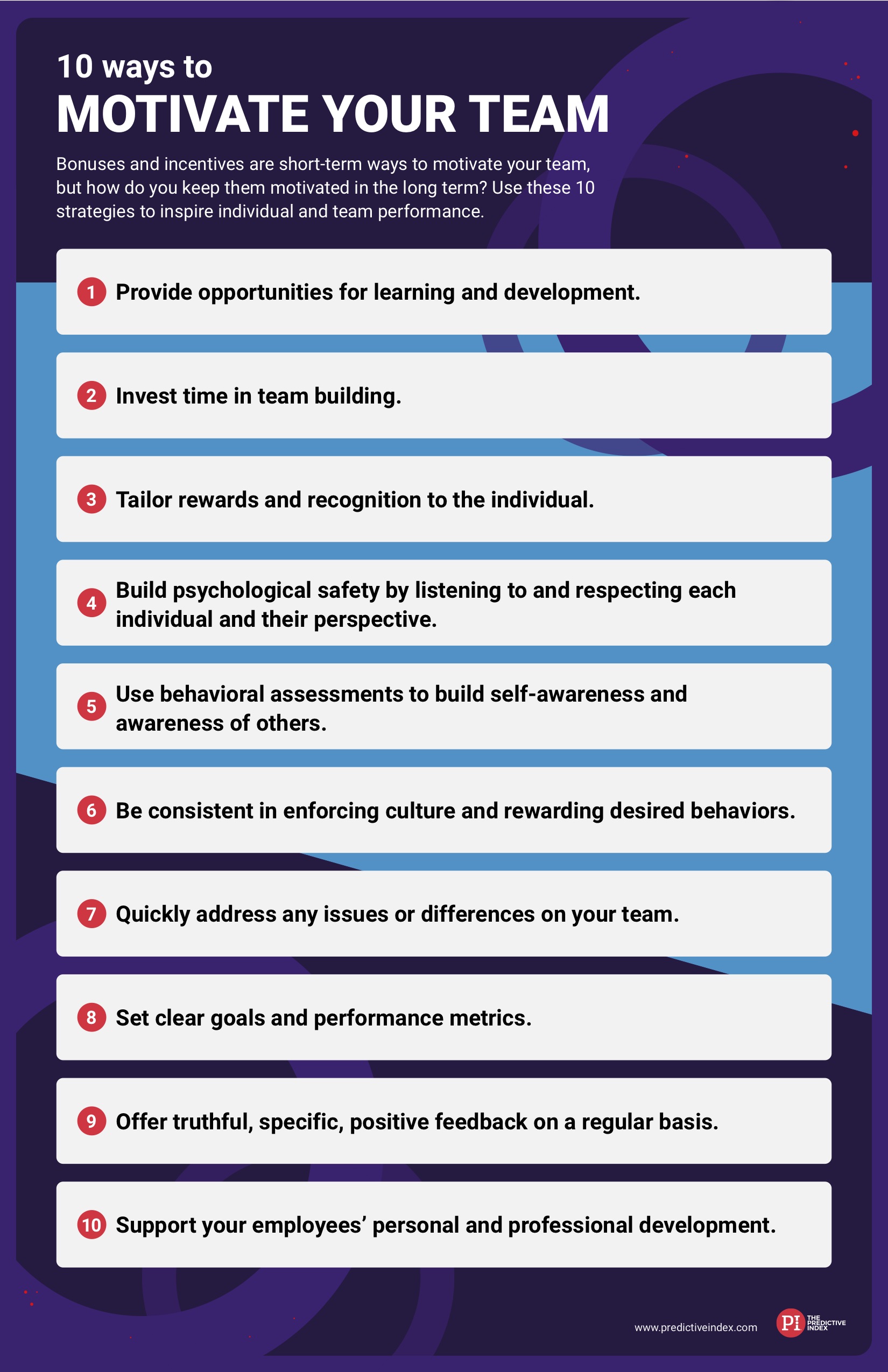Being a great manager is no easy feat. In addition to managing projects and tasks, you have to develop and manage your people. It’s no wonder that—with so much on their plates—managers fall short on occasion.
The 2019 People Management Report surveyed more than 3,000 people about their managers. Here’s what employees said when asked the question: “What managerial skills does your manager lack most?”
Related: 10 Key Management Skills in 2023

1. Team building
Just over 28% of employees said their manager lacks team-building skills. While team building is considered an “extra” activity for some—something to do only if there’s time after everything else is done—it plays a critical role in establishing trust and psychological safety on a team.
2. Providing feedback
The 2018 People Management Report found that employees prefer more feedback to less feedback. Based on the insights from this year’s report (17.5% say their manager struggles with providing feedback), there’s still room for improvement in this area.
3. Time management
Even in today’s always-on work world, it can be difficult to find time to get everything done. Roughly 14% of employees said their boss could use some work when it comes to managing their time better.
4. Delegation
Nearly 12% of employees said their boss lacks good delegation skills. This may go hand-in-hand with time management. If you’re currently swimming in to-dos, ask yourself: Am I delegating enough?
(Check out these six steps to effective delegation from Donna Genett, author of “If You Want It Done Right, You Don’t Have to Do It Yourself!”)
5. Communication
Often hailed as the No. 1 skill for managers to learn, 10.2% of employees find their manager lacking when it comes to communication.
How can you improve communication with your direct reports? Establish a habit of regularly communicating updates—whether that’s through a daily standup, email roundup, or weekly team meetings.
(Hint: The report also found that the ideal cadence for 1:1 meetings is—at a minimum—once every other week.
Take your management skills to the next level.
Try these 10 tips to motivate your team long-term:









